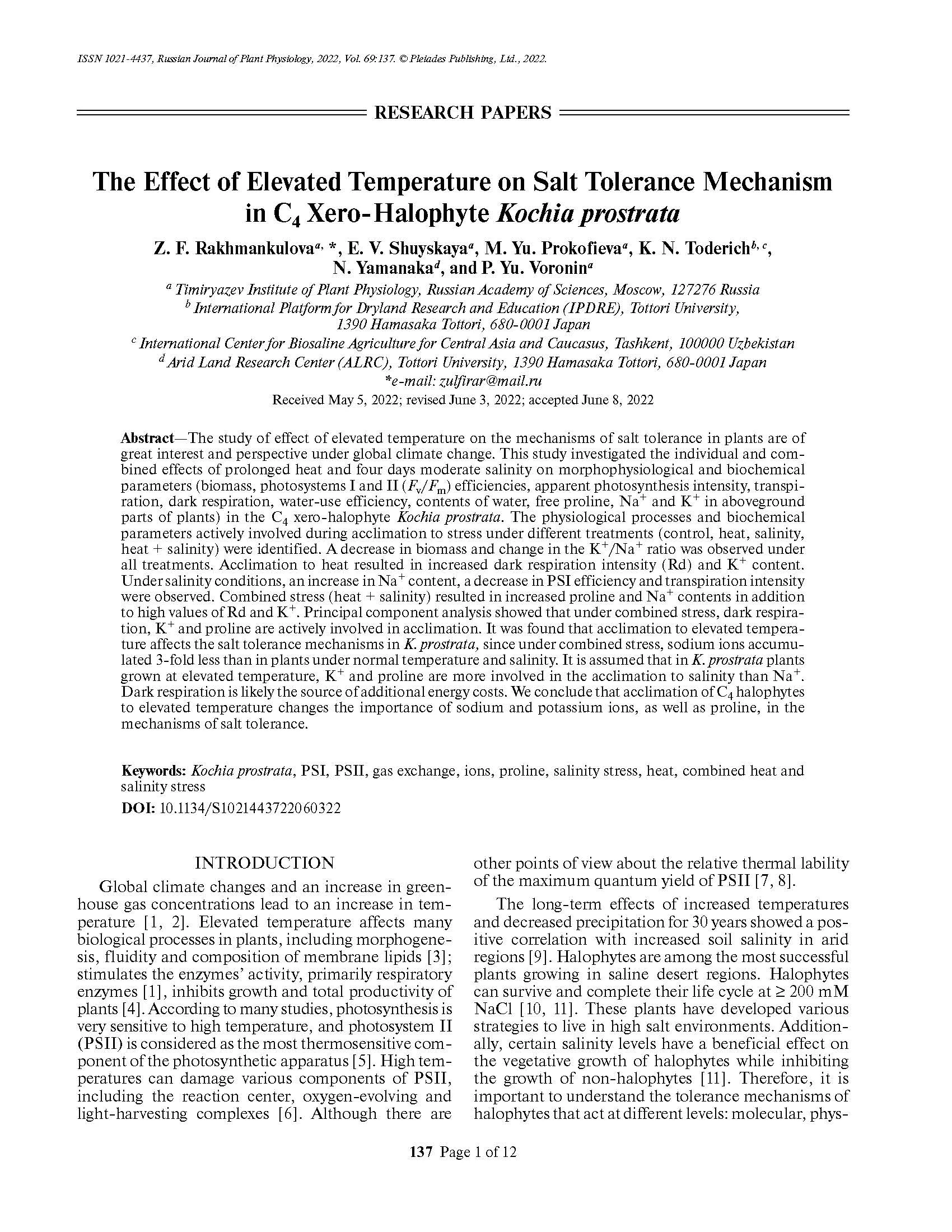The Effect of Elevated Temperature on Salt Tolerance Mechanism in C4 Xero-Halophyte Kochia prostrata
The study of effect of elevated temperature on the mechanisms of salt tolerance in plants are of great interest and perspective under global climate change. This study investigated the individual and combined effects of prolonged heat and four days moderate salinity on morphophysiological and biochemical parameters (biomass, photosystems I and II (Fv/Fm) efficiencies, apparent photosynthesis intensity, transpiration, dark respiration, water-use efficiency, contents of water, free proline, Na+ and K+ in aboveground parts of plants) in the С4 xero-halophyte Кochia prostrata. The physiological processes and biochemical parameters actively involved during acclimation to stress under different treatments (control, heat, salinity, heat + salinity) were identified. A decrease in biomass and change in the K+/Na+ ratio was observed under all treatments. Acclimation to heat resulted in increased dark respiration intensity (Rd) and K+ content.
Under salinity conditions, an increase in Na+ content, a decrease in PSI efficiency and transpiration intensity were observed. Combined stress (heat + salinity) resulted in increased proline and Na+ contents in addition to high values of Rd and K+. Principal component analysis showed that under combined stress, dark respiration, K+ and proline are actively involved in acclimation. It was found that acclimation to elevated temperature affects the salt tolerance mechanisms in K. prostrata, since under combined stress, sodium ions accumulated 3-fold less than in plants under normal temperature and salinity. It is assumed that in K. prostrata plants grown at elevated temperature, K+ and proline are more involved in the acclimation to salinity than Na+.
Dark respiration is likely the source of additional energy costs. We conclude that acclimation of С4 halophytes to elevated temperature changes the importance of sodium and potassium ions, as well as proline, in the mechanisms of salt tolerance.
Year
2022
Publication Source
Russian Journal of Plant Physiology
Publication type
Scientific Paper
Volume/Chapter/Issue
69
Page Number
137









